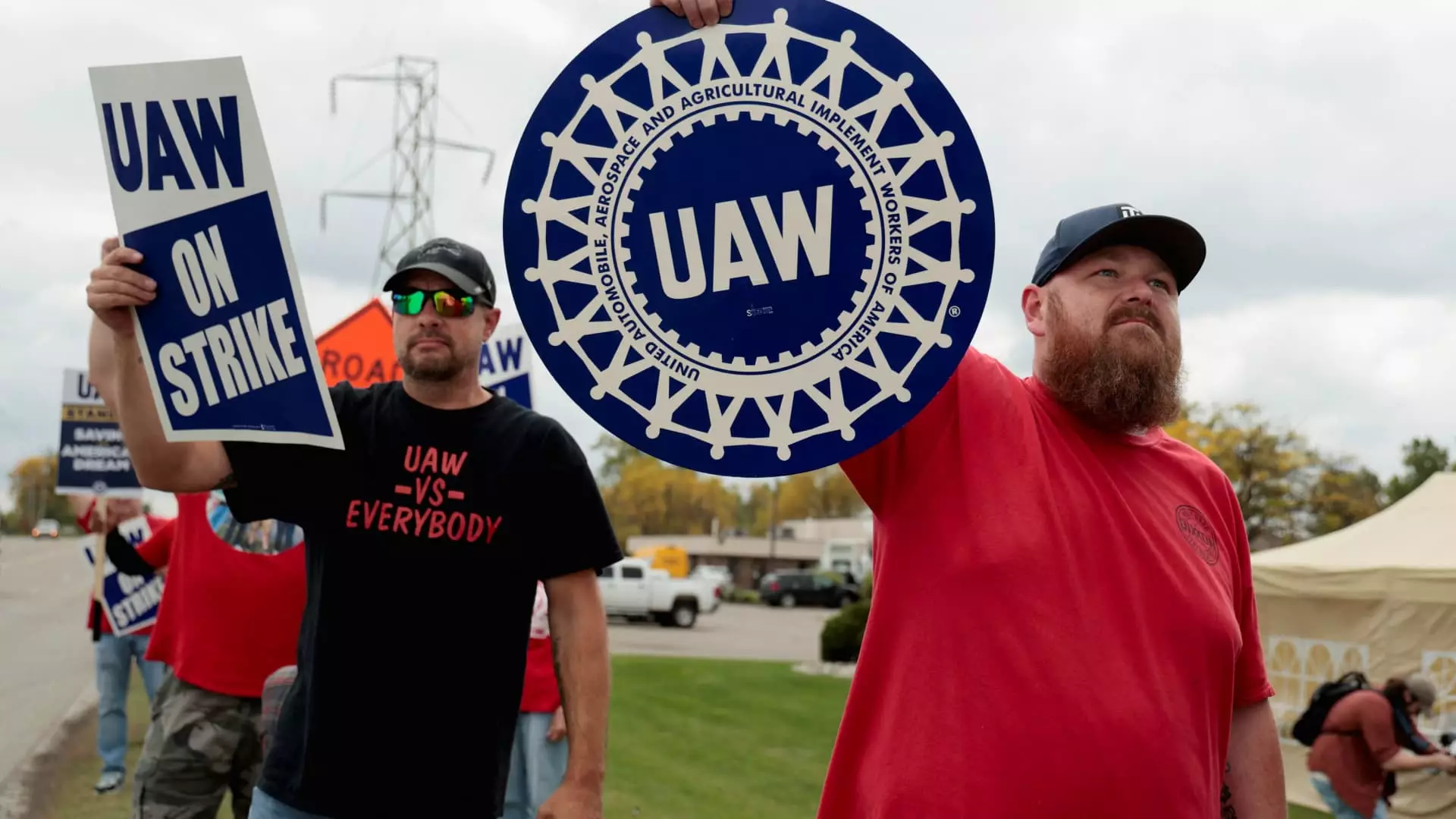Republican governors from six states in the US have recently taken a stand against the United Auto Workers’ (UAW) efforts to organize automotive factories in the South. The governors of Alabama, Georgia, Mississippi, South Carolina, Tennessee, and Texas have jointly condemned the union’s push, citing concerns about potential layoffs and decreased future investments. This statement comes in the wake of the ongoing efforts by the UAW to organize workers in southern states, including the current vote among Volkswagen workers in Chattanooga, Tennessee.
The elected state leaders, including Tennessee Governor Bill Lee, argue that while the UAW-negotiated contracts with major automakers like General Motors, Ford Motor, and Stellantis may provide short-term benefits, they could have long-term negative consequences on jobs and investments in the automotive industry. According to the governors, unionization could jeopardize the jobs that have become integral to the fabric of automotive manufacturing in their states. They point out that layoffs have already been announced by all UAW automakers this year, raising concerns about the impact of further unionization efforts.
The UAW, which is currently in the process of organizing a vote among Mercedes-Benz workers in Alabama as well, has not yet responded to the governors’ statement. The union has been actively pursuing an ambitious organizing drive targeting 13 automakers across southern states and other regions. While the UAW has successfully negotiated record contracts with major automakers in the past, recent layoffs and buyout offers have raised questions about the long-term implications of such agreements.
Automakers have been facing significant challenges in recent years, including the transition to electric vehicles, market downturns, and economic uncertainties. Stellantis, the result of a merger between Fiat Chrysler and PSA Groupe, has led the way in cost-cutting measures, including layoffs of supplemental workers who do not have the same pay and benefits as traditional assembly plant workers. The company has reportedly cut over 1,000 supplemental workers this year alone, citing the need for efficiency amid challenging market conditions.
In response to market pressures, automakers like Ford and GM have offered voluntary buyouts to their workers and announced layoffs at various facilities. Ford, for example, has transferred many laid-off workers to other nearby plants, while GM has focused its post-contract layoffs on factory changes. Shift reductions and plant closures have also been part of the cost-cutting measures undertaken by automakers in response to changing market dynamics.
In addition to Tennessee Governor Bill Lee, other Republican governors who signed the joint statement against UAW organization efforts include Kay Ivey of Alabama, Brian Kemp of Georgia, Tate Reeves of Mississippi, Henry McMaster of South Carolina, and Greg Abbott of Texas. The governors’ concerns about the potential impact of unionization on jobs and investments underscore the complex challenges facing the automotive industry in the South.
The ongoing debate between the UAW, automakers, and state leaders highlights the delicate balance between short-term gains and long-term sustainability in the automotive industry. As the industry continues to evolve and adapt to changing market conditions, the decisions made today could have far-reaching implications for the future of automotive manufacturing in the United States.

